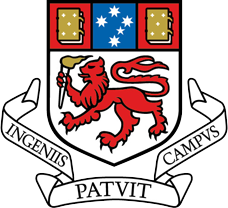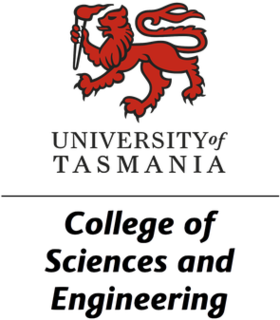TasTAFE is a Tasmanian tertiary education body of the Australian state-based Technical and Further Education system run by the Tasmanian State Government. The main campuses are located at Hobart, Warrane, Claremont, Glenorchy, Launceston, Alanvale, Devonport and Burnie.
TasTAFE was originally known as TAFE Tasmania and included two institutes, the Institute of TAFE Tasmania and the Drysdale Institute.
The Institute of TAFE Tasmania and Drysdale Institute were wound up in 2008 and two new bodies—the Tasmanian Polytechnic and the Skills Institute—began delivering statewide vocational education and training on 1 January 2009.
The Tasmanian Polytechnic was one of three organisations created through the Tasmania Tomorrow reforms. The other two organisations were the Tasmanian Academy and the Tasmanian Skills Institute.
The Tasmanian Polytechnic was created from the merger of Tasmanian Colleges and TAFE Tasmania, [1] following the Tasmanian State Government's reform of post-year-10 education in 2009. This significant restructure envisaged taking place over a three-year period with the expectation of all colleges making the transition by 2011. [2] TAFE Tasmania had been created by combining the Institutes of TAFE in Hobart (formerly Hobart Technical College, which operated from 1888 to 1994), [3] Launceston, North West and Drysdale (Tasmania's provider of training in hospitality and tourism), with other institutions. [1]
In the second semester of 2013, the Polytechnic was dissolved and a reformed TAFE Tasmania began operating as TasTAFE. [4]
Technical and further education or simply TAFE, is the common name in English-speaking countries in Oceania for vocational education, as a subset of tertiary education. TAFE institutions provide a wide range of predominantly vocational courses.

Vocational education is education that prepares people to work as a technician or to take up employment in a skilled craft or trade as a tradesperson or artisan. Vocational Education can also be seen as that type of education given to an individual to prepare that individual to be gainfully employed or self employed with requisite skill. Vocational education is known by a variety of names, depending on the country concerned, including career and technical education, or acronyms such as TVET and TAFE.

The University of Tasmania (UTAS) is a public research university, primarily located in Tasmania, Australia. Founded in 1890, it is Australia's fourth oldest university. Christ College, one of the university's residential colleges, first proposed in 1840 in Lieutenant-Governor Sir John Franklin's Legislative Council, was modeled on the Oxford and Cambridge colleges, and was founded in 1846, making it the oldest tertiary institution in the country. The university is a sandstone university, a member of the international Association of Commonwealth Universities, and the Association of Southeast Asian Institutions of Higher Learning.
The education system in Tasmania comprises the education of children from their early years, through kindergarten, primary and high school, and tertiary education in universities and vocational education and training organisations. The system is delivered by the government-run K-12 schooling system, and numerous independent schools and colleges, most of which are controlled or sponsored by religious organisations. Public education in Tasmania is managed primarily by the Tasmanian Department of Education. The Department is responsible for all aspects of education in Tasmania including schooling, adult education, the State Library and TasTAFE, a vocational tertiary institution with many campuses around the state.
Claremont is a rural / residential locality in the local government areas (LGA) of Glenorchy (75%) and Derwent Valley (25%) in the Hobart and South-east LGA regions of Tasmania. The locality is about 6 kilometres (3.7 mi) north of the town of Glenorchy. The 2016 census recorded a population of 7750 for the state suburb of Claremont.
Newnham is a residential locality in the local government area (LGA) of Launceston in the Launceston LGA region of Tasmania. The locality is about 7 kilometres (4.3 mi) north of the town of Launceston. The 2016 census recorded a population of 6453 for the state suburb of Newnham. It is a suburb of Launceston. Newnham is located on the East Tamar Highway, on the eastern side of the Tamar River.
The Department of Education is a government department within the Government of Tasmania with responsibility for primary and secondary education, library and information services, vocational education and training services, children's services, assessment and certification services and youth affairs.
Melbourne Polytechnic, formerly NMIT, is a Higher education and vocational education (TAFE) institute located in Melbourne, Australia predominantly in the northern suburbs but also in the south with a campus at Prahran. It has seven campuses located at Preston, Collingwood, Epping, Fairfield, Heidelberg, Prahran, Greensborough, training sites at Broadmeadows, and country training facilities at Eden Park, Yan Yean, and Ararat.

Rail transport in Tasmania consists of a network of narrow gauge track of 1,067 mm reaching virtually all cities and major towns in the island state of Tasmania, Australia. Today, rail services are focused primarily on bulk freight, with no commercial passenger services being operated. The mainline railways of Tasmania are currently operated by TasRail, a Government of Tasmania-owned Corporation, who owns and maintains both rolling stock, locomotives, and track infrastructure.
The Connect Tasmania Core is the name used by the Government of Tasmania to refer to a fibre optic communications network linking all major cities of Tasmania to Victoria. The government intends to offer access to the network in order to facilitate a more competitive telecommunications industry.
Sport in Tasmania is participation in and attendance at organised sports events in the state of Tasmania in Australia.

Don College is a government comprehensive senior secondary school located in Devonport on the north-western coast of Tasmania. "The Don", as it is commonly known to residents of Devonport, is situated by the Don River and enjoys views over the river and surrounding forest reserve. The college caters for approximately 800 students in Years 11 and 12 and is administered by the Tasmanian Department of Education. Don College attracts students from Penguin and Deloraine.
Tasmania Tomorrow is a Tasmanian-government initiative which aims to improve the post-secondary education experience of Tasmanians. The initiative commenced 1 January 2009, and includes restructuring Senior Secondary Colleges and TAFE Tasmania. It was anticipated that the restructuring would be complete by the start of the 2011 school year.
Brian Neal Wightman is an Australian politician who served as Attorney-General of Tasmania from 2010 to 2014.
The Tasmanian Institute of Agriculture (TIA) is a research institute in Tasmania dedicated to research and development of sustainable agricultural industries. Founded in 1996, it is a collaborative effort of the University of Tasmania (UTAS) and the Tasmanian Government. TIA is headquartered in Hobart with additional facilities in Launceston, Burnie, Elliot, Forth and Cressy.

Henry Hunter (1832–1892) was a prominent architect and civil servant in Tasmania and Queensland, Australia. He is best known for his work on churches. During his life was also at various times a state magistrate of Tasmania, a member of the Tasmanian State Board of Education, the Hobart Board of Health, a Commissioner for the New Norfolk Insane Asylum and President of the Queensland Institute of Architects.
The Tasmanian Heritage Register is the statutory heritage register of the Australian state of Tasmania. It is defined as a list of areas currently identified as having historic cultural heritage importance to Tasmania as a whole. The Register is kept by the Tasmanian Heritage Council within the meaning of the Tasmanian Historic Cultural Heritage Act 1995. It encompasses in addition the Heritage Register of the Tasmanian branch of the National Trust of Australia, which was merged into the Tasmanian Heritage Register. The enforcement of the heritage's requirements is managed by Heritage Tasmania.

Joanna Clare Siejka is an Australian politician and not for profit leader.
The College of Health and Medicine is a college of the University of Tasmania that incorporates the School of Medicine, School of Health Sciences, Wicking Centre and Menzies Institute for Medical Research. The College incorporates medicine, pharmacy, psychology, paramedicine, nursing, laboratory medicine, allied health sciences and rural health into its curricula and research.

The College of Sciences and Engineering is a college of the University of Tasmania that incorporates the School of Natural Sciences, School of Technology, Environments and Design, the Australian Maritime College, the Institute for Marine and Antarctic Studies, and the Tasmanian Institute of Agriculture. The college incorporates science, technology, engineering, and mathematics (STEM) education and research at the University.